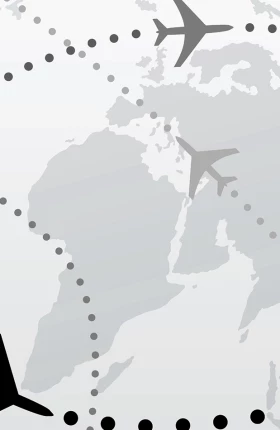This commentary was first published by Infrastructure Journal .
Getting people from A to B will not be made any easier by 2025. More people (an additional 1 billion people will inhabit the earth, 87 percent of this growth originating in Asia and Africa), will increasingly live in more urban megacities—a Great Urban Shift in which nearly half of the world’s population will live in cities of more than 1 million inhabitants. The total number of megacities—cities with more than 10 million inhabitants—is also projected to increase from 23 in 2011 to 37 by 2025. An estimated $4 trillion will be required annually from now until 2025 just to meet the staggering global demand for infrastructure to help get everybody around, and yet fewer public resources will be available for Strategic Infrastructure: Steps to Prepare and Accelerate Public-Private Partnerships .
Such global demographic shifts will be accompanied by profound changes in their character and makeup: half of the world’s population will move into the middle class by 2030, for instance—a Great Economic Shift that will influence all types of middle-class expectations pertaining to mobility. Worldwide car ownership is projected to swell by 60 percent by 2025, leading to roughly 1.6 billion cars on the streets. An aging world (those aged 55 or older will account for 20 percent of world population, or 1.6 billion out of 8 billion, in 2025) will call for age-appropriate mobility solutions. Megatrend increases in mobile phone and smart phone use will create a new era of hyperconnectivity, generating daunting levels of data—the The Age of Digital Ecosystems: Thriving in a World of Big Data —and yet emerging from all of this will be a new generation of mobility solutions that will leverage the field of big-data analytics to provide solutions for travel, transport, and supply chains.
Big Opportunities: Four Solution Ideas Highlighted
Connected World: Transforming Travel, Transportation, and Supply Chains identifies several innovations that hold great promise for rising to these challenges and revolutionizing the travel and transportation ecosystem. The solutions will not emerge in a vacuum, of course. The Connected World report, thus, addresses four global scenarios in order to suggest how those different global contexts will shape demand. Some of the solutions have the potential to provide significant business opportunities and societal benefits. From an initial list of 100, the following 4 were chosen, with some selected features of each highlighted below:
- An integrated, proactive, intermodal travel assistant would create one seamless ticket across road, railway, and air. Users might use voice- or gesture-controlled data glasses (or even contact lenses), for example, that would offer real-time travel information, enabling quick changes across all modes of transport—from canceling old reservations to the ticketing and payment of new reservations, all of it handled seamlessly in one device.
- A condition-based megacity traffic-management system would integrate and process up-to-the-minute information from vehicles, travel infrastructure, individuals, and the environment to manage traffic—and even predict congestion—in the largest cities around the world.
- A fully automated check-in, security, border-control, and smart-visa system would harness technology to eliminate long lines at airport screening points and border crossings, while simultaneously enhancing security using biometric traveler identification through fingerprints, facial recognition, or iris scanning.
- A tracking and transparency-based logistics optimizer—cheap and ubiquitous radio frequency identification (RFID) chips—would be incorporated into product packaging and used to track global inventories in real time as well as CO2 emissions associated with product manufacture. Consumers would thus be given valuable information on the quality and environmental impact of the items in their shopping carts.
The report includes analyses of the industry impact of each of these four solutions, a look at a typical “user journey” with each solution, and a view of early implementation. Many other solution ideas are also discussed, including: holographic communication platforms, mobile living rooms and virtual offices, driverless swarm cars, mobile pop-up hotels, and logistics drones. These solutions will be game changers, and the technological know-how to make them a reality largely exists.
Challenges to Implementation Are Surmountable
Successful implementation of the solutions will depend on surmounting several institutional barriers. The main obstacles, according to the report, are a lack of cooperation across industries and various public agencies. The challenges that typically surround hyperconnectivity—including data ownership, data privacy, and resilience against cyberattacks—create additional hurdles, but the Forum’s push to bring corporate and government leaders together to promote development of these solutions is aimed at addressing such challenges. It is only through an integrated approach across industries and through active support by the public stakeholders that we can realize these solutions.





